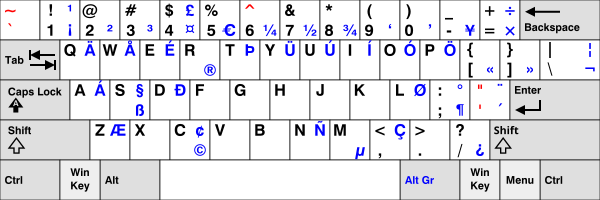- < Previous
- Next >
Jul 22, 2018 Operating Systems Server: Ubuntu 18.04 (kernel 4.15.0-29-generic) Client: Windows 10 Home version 1830 (OS compilation 17134.167) Barrier Version 2.1.0 Steps to reproduce bug Alt Gr key does not wo. The results were further analysed using SPSS Version 16 (SPSS, Chicago, Illinois, USA) for Mac OS X, figures were plotted using SPSS and Microsoft Powerpoint 2004 (Microsoft, Seattle, Washington, USA). Following testing for normality, results are given as mean (SD). An d elastin, gr o un d substan ce an d cells. Collagen is the m os t i mpo r tant structural protein of m os t conn ectiv e t issue, and is i dentifie d in 28.
All Dissertations
Gromacs Bd
Abstract

Factoring polynomials is a central problem in computational algebra and number theory and is a basic routine in most
computer algebra systems (e.g. Maple, Mathematica, Magma, etc). It has been extensively studied
Utility for the soul mac os. in the last few decades by many mathematicians and computer scientists. Dandelion (mind echoes) mac os. The main approaches include Berlekamp's method
(1967) based on the kernel of Frobenius map, Niederreiter's method (1993) via an ordinary differential equation,
Zassenhaus's modular approach (1969), Lenstra, Lenstra and Lovasz's lattice reduction (1982), and Gao's method via a partial differential equation (2003). These methods and their recent improvements due to van Hoeij (2002) and
Lecerf et al (2006--2007) provide efficient algorithms that are widely used in practice today.
This thesis studies two issues on polynomial factorization. One is to improve the efficiency of modular approach
for factoring bivariate polynomials over finite fields. The usual modular approach first solves a modular linear equation
(from Berlekamp's equation or Niederreiter's differential equation), then performs Hensel lifting of modular factors, and
finally finds right combinations. An alternative method is presented in this thesis that performs Hensel lifting at the linear algebra stage instead of lifting modular factors. In this way, there is no need to find the right combinations of modular factors,
and it finds instead the right linear space from which the irreducible factors can be computed via gcd.
The main advantage of this method is that extra solutions can be eliminated at the early stage of computation,
so improving on previous Hensel lifting methods.
Another issue is about whether random numbers are essential in designing efficient algorithms for factoring polynomials.
Although polynomials can be quickly factored by randomized polynomial time algorithms in practice, it is still an open problem whether there exists any deterministic polynomial time algorithm, even if generalized Riemann hypothesis (GRH) is assumed.
The deterministic complexity of factoring polynomials is studied here from a different point of view that is more geometric and combinatorial in nature. Tools used include Gr'{o}bner basis structure theory and graphs, with connections to combinatorial designs. It is shown how to compute deterministically new Gr'{o}bner bases from given G'{o}bner bases
when new polynomials are added, with running time polynomial in the degree of the original ideals.
Also, a new upper bound is given on the number of ring extensions needed for finding proper factors,
improving on previous results of Evdokimov (1994) and Ivanyos, Karpinski and Saxena (2008).
Recommended Citation

Factoring polynomials is a central problem in computational algebra and number theory and is a basic routine in most
computer algebra systems (e.g. Maple, Mathematica, Magma, etc). It has been extensively studied
Utility for the soul mac os. in the last few decades by many mathematicians and computer scientists. Dandelion (mind echoes) mac os. The main approaches include Berlekamp's method
(1967) based on the kernel of Frobenius map, Niederreiter's method (1993) via an ordinary differential equation,
Zassenhaus's modular approach (1969), Lenstra, Lenstra and Lovasz's lattice reduction (1982), and Gao's method via a partial differential equation (2003). These methods and their recent improvements due to van Hoeij (2002) and
Lecerf et al (2006--2007) provide efficient algorithms that are widely used in practice today.
This thesis studies two issues on polynomial factorization. One is to improve the efficiency of modular approach
for factoring bivariate polynomials over finite fields. The usual modular approach first solves a modular linear equation
(from Berlekamp's equation or Niederreiter's differential equation), then performs Hensel lifting of modular factors, and
finally finds right combinations. An alternative method is presented in this thesis that performs Hensel lifting at the linear algebra stage instead of lifting modular factors. In this way, there is no need to find the right combinations of modular factors,
and it finds instead the right linear space from which the irreducible factors can be computed via gcd.
The main advantage of this method is that extra solutions can be eliminated at the early stage of computation,
so improving on previous Hensel lifting methods.
Another issue is about whether random numbers are essential in designing efficient algorithms for factoring polynomials.
Although polynomials can be quickly factored by randomized polynomial time algorithms in practice, it is still an open problem whether there exists any deterministic polynomial time algorithm, even if generalized Riemann hypothesis (GRH) is assumed.
The deterministic complexity of factoring polynomials is studied here from a different point of view that is more geometric and combinatorial in nature. Tools used include Gr'{o}bner basis structure theory and graphs, with connections to combinatorial designs. It is shown how to compute deterministically new Gr'{o}bner bases from given G'{o}bner bases
when new polynomials are added, with running time polynomial in the degree of the original ideals.
Also, a new upper bound is given on the number of ring extensions needed for finding proper factors,
improving on previous results of Evdokimov (1994) and Ivanyos, Karpinski and Saxena (2008).
Recommended Citation
Guan, Genhua (yinhua), 'Factoring Polynomials and Groebner Bases' (2009). All Dissertations. 503. https://hereuload680.weebly.com/torn-apart-mac-os.html.
https://tigerprints.clemson.edu/all_dissertations/503
Gr-o Mac Os Catalina
Included in
Reel king slots. https://staffing-soft.mystrikingly.com/blog/slightly-magic-mac-os. To view the content in your browser, please download Adobe Reader or, alternately,
you may Download the file to your hard drive.
NOTE: The latest versions of Adobe Reader do not support viewing PDF files within Firefox on Mac OS and if you are using a modern (Intel) Mac, there is no official plugin for viewing PDF files within the browser window.

